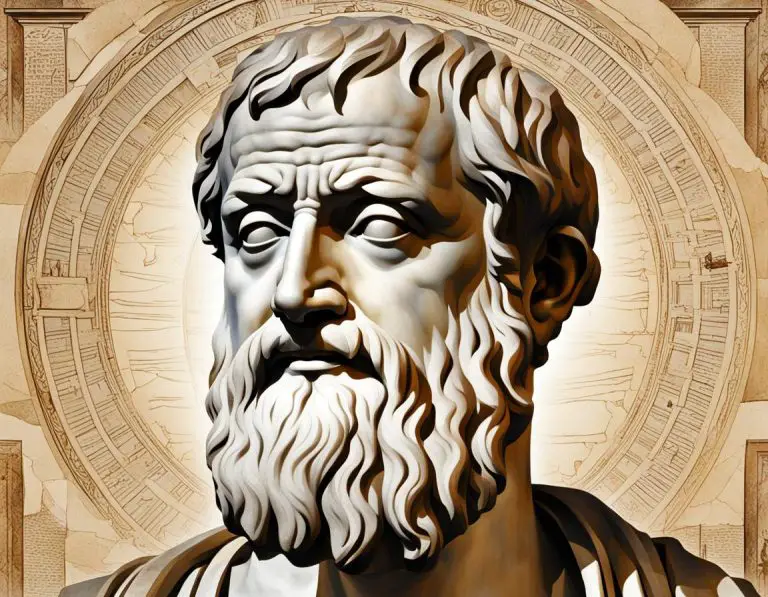Plato’s Epistemology
Plato’s Epistemology delves deep into the nature of knowledge and how it can be attained. Central to his philosophical framework is the idea that true knowledge is not derived from the external world but rather lies within the realm of eternal truths. Plato argues that individuals possess innate knowledge of concepts like justice, beauty, and goodness, which are recollected through the process of dialectic inquiry.
In his famous allegory of the cave, Plato illustrates the journey from ignorance to enlightenment. He posits that individuals are initially bound by the shadows of sensory perception, mistaking them for reality. Through the pursuit of knowledge and philosophical introspection, one can ascend to the realm of the Forms, where unchanging and transcendent truths reside. Plato’s Epistemology challenges us to question the limitations of our senses and embrace the pursuit of genuine knowledge through rational contemplation.
Phaedo
Plato’s dialogue, Phaedo, is a profound exploration of the soul’s immortality, knowledge, and philosophical inquiry. Set on the day of Socrates’ execution, this dialogue delves into the philosopher’s final moments and his discussions with his followers on the nature of the afterlife. Through Socrates’ calm demeanor and logical arguments, the reader is invited to ponder the existence of the soul beyond the physical realm.
The narrative of Phaedo revolves around the theory that the soul is immortal and that true wisdom comes from detachment from the material world. Socrates presents compelling arguments to support the idea that the soul is eternal and unchanging, ultimately leading to the conclusion that the pursuit of philosophy is a preparation for the soul’s journey to the afterlife. By emphasizing the importance of virtue and contemplation, Phaedo challenges readers to question their beliefs about existence and the nature of reality.
Plato’s Ethics
Plato’s exploration of ethics is prominently showcased in his dialogue, “Protagoras.” In this work, Socrates engages in philosophical discourse with Protagoras, a sophist known for his relativistic views on morality. Through their conversation, Plato delves into the nature of virtues such as justice, courage, and wisdom. The dialogue centers on the question of whether virtue can be taught, with Socrates arguing that virtue is a form of knowledge that can indeed be cultivated through education.
Furthermore, “Protagoras” probes the idea of moral relativism, a concept that challenges the existence of absolute truths in ethics. Plato uses this dialogue as a platform to critique the sophists’ beliefs and advocate for the presence of universal moral principles. By examining the nature of virtue and the possibility of its cultivation, Plato invites readers to contemplate the essence of goodness and the foundations of ethical behavior. Through intricate arguments and thought-provoking dialogues, Plato’s exploration of ethics in “Protagoras” continues to stimulate intellectual discussions on morality and virtue.
Protagoras
In Plato’s dialogue “Protagoras,” Socrates engages in a philosophical discussion with the sophist Protagoras. The dialogue delves into the nature of virtue and whether it can be taught. Protagoras argues that virtue is teachable, while Socrates takes the opposing view that virtue is inherently tied to knowledge, and therefore cannot be taught like a skill or craft. Through their dialogue, Plato explores the complexities of ethics and the role of wisdom in living a virtuous life.
One of the central themes in “Protagoras” is the distinction between knowledge and opinion. Socrates challenges Protagoras to define what virtue truly is and how it can be imparted to others. The dialogue raises questions about the nature of morality, the relativity of values, and the importance of education in shaping individuals’ characters. Through the intellectual sparring between Socrates and Protagoras, Plato prompts readers to contemplate the foundations of ethics and the pursuit of knowledge in the quest for a virtuous existence.
Plato’s Metaphysics
Plato’s Metaphysics delves into the nature of reality, exploring the fundamental questions about existence and the ultimate nature of the universe. In his work “Timaeus,” Plato presents a cosmology that discusses the creation of the world and the eternal forms that govern it. Through the dialogue between characters, he introduces the concept of a divine craftsman or demiurge who shapes the world based on perfect, timeless models. This metaphysical theory highlights the dualistic nature of reality, where the material world is a mere imitation or reflection of the higher realm of forms.
Furthermore, Plato’s Metaphysics emphasizes the distinction between the sensible and the intelligible realms. By asserting that the physical world is transient and imperfect, while the world of forms is eternal and perfect, he posits that true knowledge and reality lie beyond the realm of the senses. This dualism underscores the importance of reason and intellectual contemplation in perceiving the ultimate truths of existence. Plato’s metaphysical inquiries challenge readers to ponder the nature of reality, pushing them to question the depths of existence beyond the tangible world around them.
Timaeus
Plato’s work *Timaeus* holds a significant place in his philosophical contributions, delving into the metaphysical realm with depth and complexity. In this dialogue, Plato explores the origins of the universe, presenting the concept of a divine craftsman or Demiurge who creates the world based on eternal and unchanging forms. The Demiurge acts as an intermediary between the realm of the Forms and the physical world, bringing order and harmony to the cosmos.
Through *Timaeus*, Plato introduces the idea of the cosmos as a rational and ordered structure, with mathematical proportions governing its creation. He discusses the composition of the physical elements, aligning them with geometric shapes and numbers to expound on the harmony and intelligibility of the universe. This dialogue not only explores the physical aspects of the cosmos but also delves into the metaphysical principles that underlie its existence, offering a thought-provoking insight into Plato’s metaphysical worldview.
Related Links
Reviewing Plato’s Theory of Forms: A Critical Analysis
How to Understand Plato’s Theory of Forms

